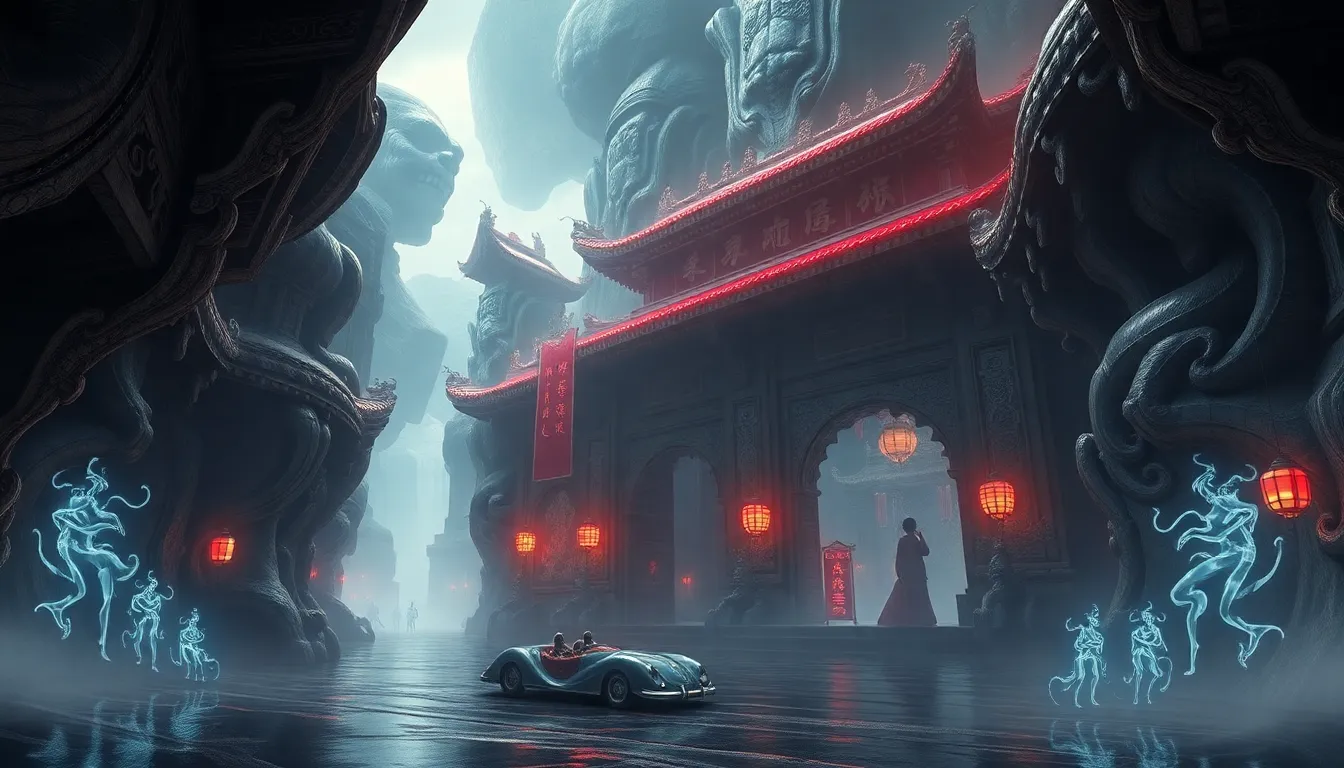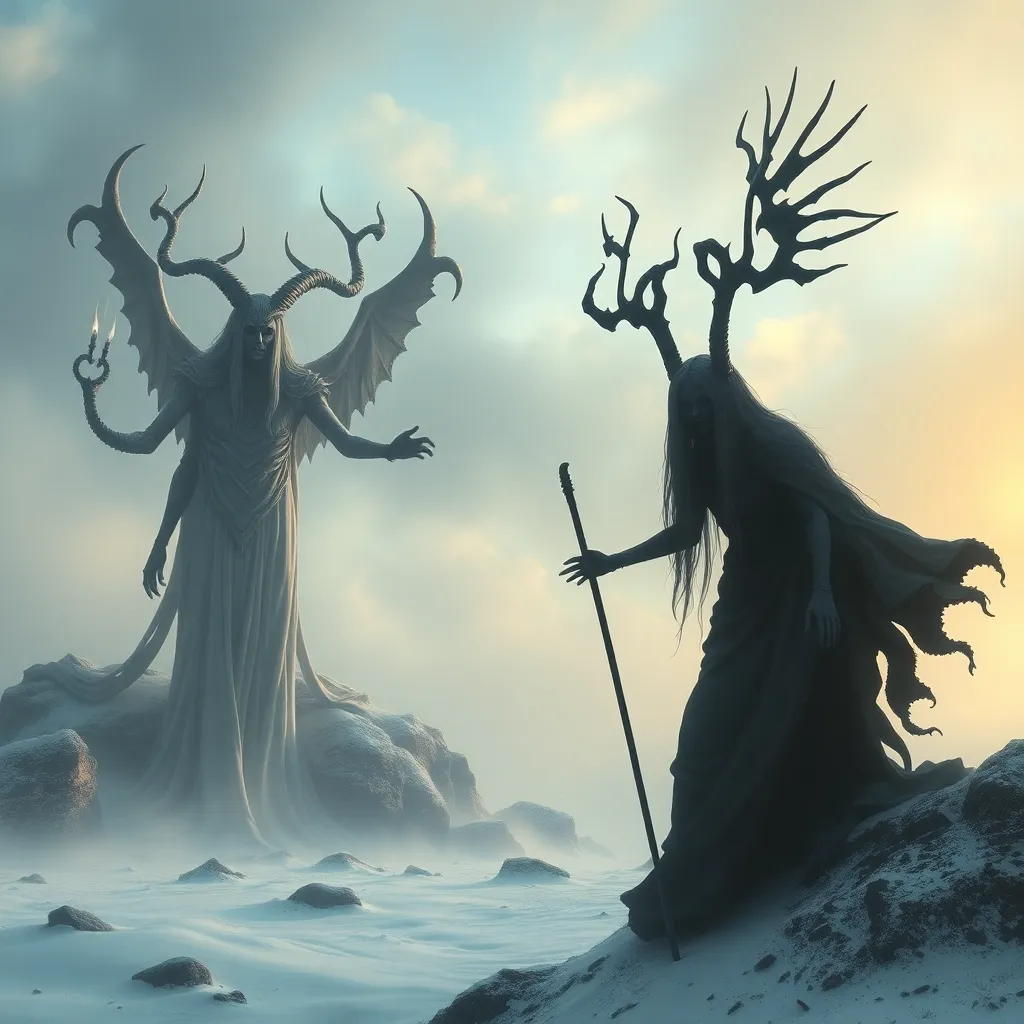The Underworld’s Crossroads: Exploring the Chinese Diyu and its Crossroads
I. Introduction
Diyu, often referred to as the “Chinese underworld,” is a fundamental concept in Chinese mythology that encompasses the afterlife and the journey of souls. It is a complex realm where spirits undergo judgment and punishment based on their earthly deeds. The importance of Diyu extends beyond mere mythology; it reflects deep-rooted beliefs in morality, justice, and the cyclical nature of life and death in Chinese culture.
This article will delve into the various dimensions of Diyu, with a particular focus on the symbolic crossroads within this underworld. The crossroads in Diyu serve as a metaphor for moral choices and the pivotal decisions that souls must make as they navigate their afterlife journey.
II. Historical Context of Diyu
The origins of Diyu can be traced back to ancient Chinese texts, evolving over centuries through various philosophical and religious influences. Initially, the concept was tied closely to ancestral worship and folk beliefs, but it expanded significantly with the introduction of Buddhism and Daoism.
- Buddhism: Brought the idea of karma and reincarnation, which integrated with existing beliefs about the afterlife.
- Daoism: Contributed notions of harmony with the universe and the importance of moral conduct.
- Folk Beliefs: Enrich the narrative of Diyu with local legends and practices surrounding death and the afterlife.
Diyu also plays a significant role in traditional Chinese funerary practices, where rituals are performed to ensure that the deceased navigate the underworld safely and are judged favorably.
III. The Structure of Diyu
Diyu is often depicted as a multi-layered realm, consisting of various levels and divisions that correspond to different types of punishments and rewards. The structure is both intricate and symbolic, designed to reflect the moral weight of one’s actions during life.
- Levels of Diyu: Typically, Diyu is described as having ten courts, each presided over by a king of hell who evaluates souls based on their earthly deeds.
- Key Figures: Prominent deities include Yama (the king of hell), the judges of the underworld, and various servants who administer justice.
- Geography and Architecture: Diyu is often visualized with terrifying landscapes, reflecting the consequences of immoral actions – from fiery rivers to icy plains.
IV. The Crossroads Symbolism in Diyu
Within the context of Diyu, crossroads symbolize critical junctures where souls face moral choices that determine their fate. This symbolism resonates deeply with the Chinese worldview, emphasizing the importance of ethical behavior.
- Moral Choices: Crossroads represent the decisions one must make, reflecting a person’s character and the consequences of their actions.
- Guiding Souls: At these crossroads, souls may encounter guides who help them navigate their path based on their past actions.
- Comparative Mythology: Similar to crossroads in other cultures, such as the Greek concept of Charon guiding souls across the river Styx, the crossroads in Diyu also serve as critical decision points.
V. The Journey Through Diyu
The journey through Diyu is marked by a process of judgment and punishment for the deceased. Upon arrival, souls are assessed based on their actions during their lifetime.
- Judgment Process: Each soul is brought before a judge, where their life is evaluated, and appropriate consequences are assigned.
- Trials and Tribulations: Souls may face various trials at the crossroads, confronting their past misdeeds and the pain they caused others.
- Redemption and Reincarnation: There exists a potential for redemption; souls may learn from their experiences and be reincarnated based on their journey through Diyu.
VI. Modern Interpretations and Representations of Diyu
In contemporary culture, Diyu continues to inspire various forms of literature, media, and spiritual practices. Its representation has evolved, integrating traditional beliefs with modern interpretations.
- Literature and Media: Diyu frequently appears in books, films, and television series, often depicted as a dark, mystical place filled with challenges and moral lessons.
- Modern Spiritual Practices: Many modern Chinese still engage in rituals that honor the dead and acknowledge the importance of moral conduct.
- Tradition vs. Modernization: There is a continuous dialogue between traditional views of Diyu and contemporary understanding, reflecting society’s evolving values.
VII. Crossroads and Personal Reflection
The crossroads of Diyu offer profound insights into personal decision-making. These intersections serve as reminders of the moral dilemmas individuals face in their lives.
- Personal Decision-Making: Much like souls in Diyu, people are often confronted with choices that can significantly impact their futures.
- Cultural Implications: The choices we make can reflect broader cultural values and ethical considerations.
- Lessons from Diyu: The narratives of Diyu remind us of the importance of reflecting on our actions and their consequences.
VIII. Conclusion
In conclusion, the concept of Diyu and its crossroads holds significant importance in Chinese culture, serving as a rich tapestry of moral lessons, spiritual beliefs, and cultural narratives. The enduring legacy of these concepts emphasizes the importance of ethical behavior and the choices we make in our lives.
As we reflect on the complexities of Diyu, we are invited to explore deeper the cultural, moral, and spiritual dimensions that shape our understanding of life and the afterlife. The crossroads within Diyu remind us that every decision we make can lead us down different paths, shaping our destinies in profound ways.



